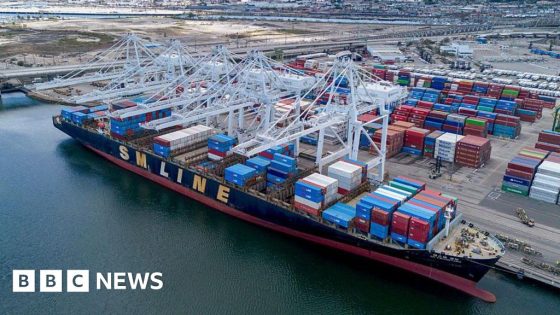US and Chinese officials are set to engage in crucial talks this week aimed at deescalating the ongoing trade war between the two largest economies. Scheduled from May 9 to 12, these discussions in Switzerland will feature key representatives from both nations, including Chinese Vice Premier He Lifeng and US Treasury Secretary Scott Bessent.
- US and China to begin trade talks
- Chinese Vice Premier attending in Switzerland
- US imposing tariffs up to 145%
- Beijing retaliating with 125% tariffs
- Focus on de-escalation, not trade deal
- Trade war affecting global financial markets
Since President Donald Trump returned to the White House in January, he has imposed steep import taxes on Chinese goods, reaching up to 145%. In retaliation, China has enacted levies on US products of 125%. As tensions rise, the need for constructive dialogue has never been more pressing.
Experts suggest that while these talks may not yield a comprehensive trade deal, they are essential for reducing current tensions. “We must de-escalate before we can move forward,” Mr. Bessent noted in a recent interview.
The outcome of these discussions could significantly influence both economies. Will the US reconsider its tariffs? Can China find common ground to alleviate its trade burdens? Key points to consider include:
- Potential for reduced tariffs on both sides.
- Impact on global financial markets.
- Long-term trade stability hinges on these negotiations.
As these talks progress, staying informed will be crucial for understanding their implications on the US economy and global trade. Will this be the turning point for a more stable trade relationship?
































